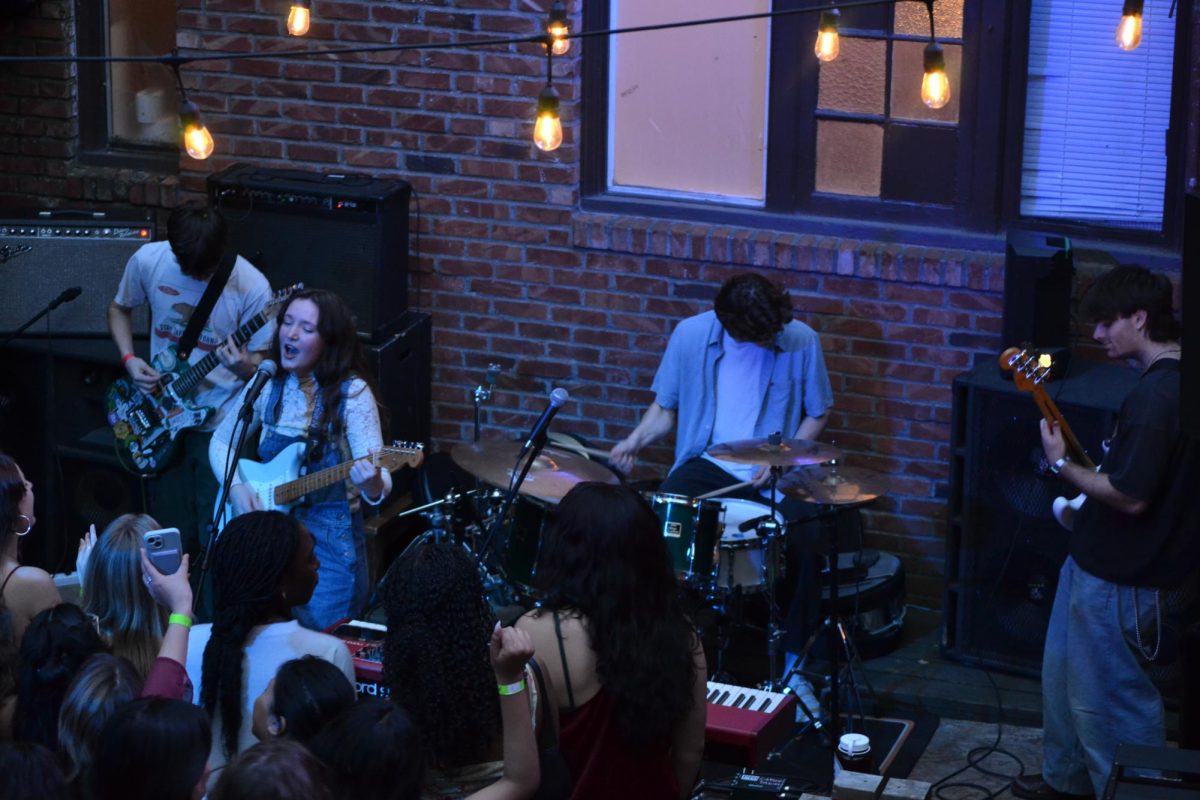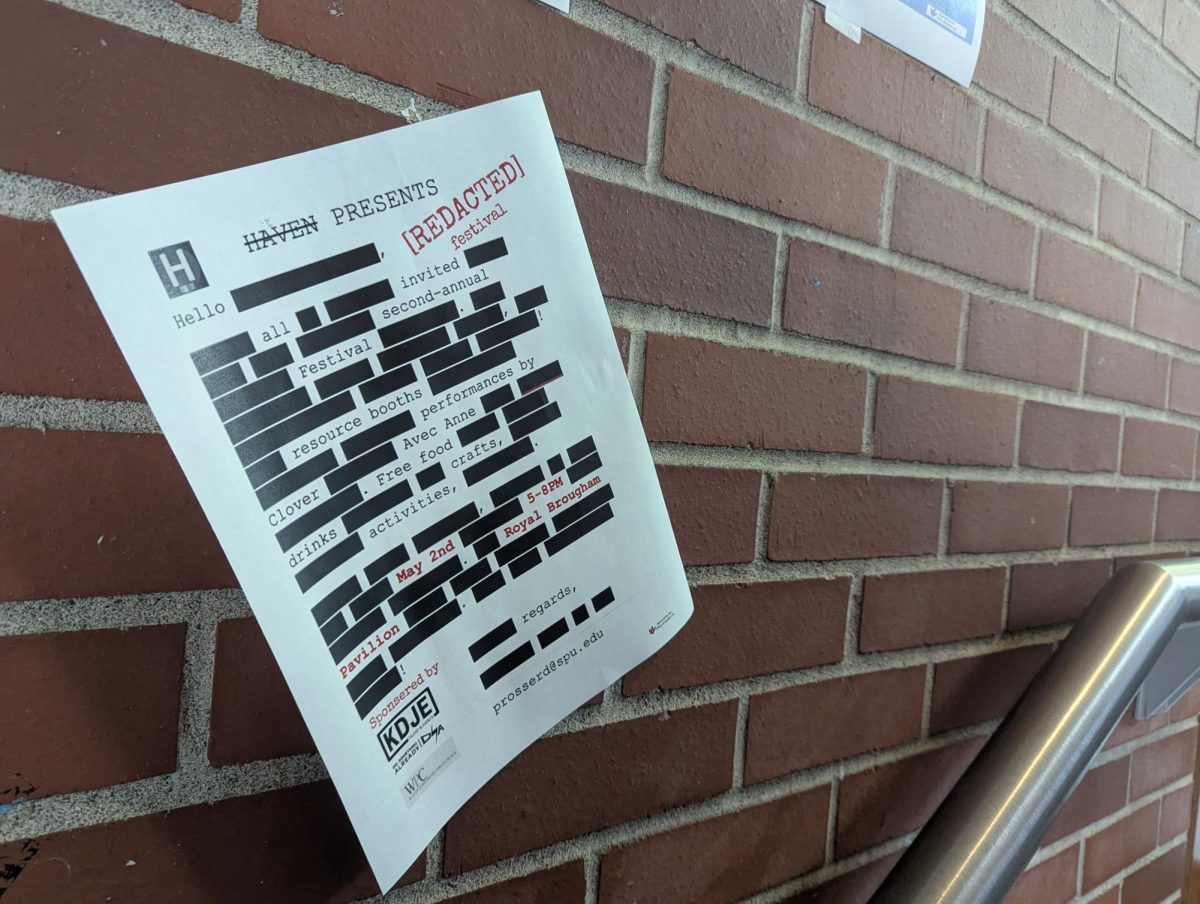★★★★☆
Margherita Vicario, Italian singer-songwriter and actress, made her film debut “Gloria!.”The United States premiere of the film at the Seattle International Film Festival on May 12, 2024, sparked what many attendees referred to as the loudest applause they heard all festival, and deservingly so.
At Sant’Ignazio Institute, a convent-like orphanage crossed with a musical academy for women, “Gloria!” reimagines what the discovery of pop music would have looked like in Baroque-era Venice. Ahead of a much-anticipated anxiously awaited visit from the newly appointed Pope Pius VII, the institute receives a grand pianoforte (a prototype– of course– as they were not invented until about 60 years later), which is deemed an immeasurable machinery of evil, and the piano is hidden away.
Found shortly by Teresa, a mistreated, mute servant girl (whose misfortunes are dramatically revealed only when they become very suddenly valuable) fueled by the symphonies whirling around in her head, finds – as I am sure you could guess– her voice in the music she begins to play secretly.
Her unique, bouncy sound soon attracts four orchestra girls: the first chair violinist Luccia (who will fall into the misunderstood frenemy stereotype as a frustrated, constrained and diminished composer), first stands to shut out all of Teresa’s unconventional (aka self-taught) ways but settles with a deal that allows both girls an hour turn at a time. As the girls eventually grow to be fascinated by Teresa’s new, unrestricted approach to music, they begin to challenge the confined systems in which they have been raised.
Each girl brings a bright innocence to their performances, as their talent and youthfulness are clear. They give such a bold tenderness to the characters, making you feel so deeply for their positions.
Paolo Rossi gives an excellent performance as Perlina, the institute’s resident chapel master, conductor and composer– the Salieri of this story. His unwavering exploitation of power left me frightened of his every glance, yet his insecure spiraling nature consistently made me scoff at his incompetence. The dichotomy of his character could have easily been painfully cliche, but Rossi’s haunting performance pulls the audience in and makes this film’s world all the more real.
Vicario sought out this story as a frustrated artist herself, “I published some albums and songs, and every time I was released to something, the journalists or people would always ask me, not ‘Tell me something about your song,’ but ‘Tell me what you think about the music in the Italian industry.’ I was like, ‘Why should we be so special? Why do you care about the position?’’ Vicario shared with the audience. “So I started to search for famous female composers, and I could find none.”
Dedicating the film to the lost works of thousands of gifted female composers who were the hidden core of these institutions, Vicario shared the semi-autobiographical importance of these women’s stories in her work.
“My goal was to put on screen what it is to live with music and imagine music. Around the 18th century, [there were] thousands of great musicians that were locked in churches to pray for the glory of God…we can imagine how many talents…existed in every time, but these girls, they were, I mean, a cow was much [more] worthy than a girl,” said Vacario.
Vicario was fortunate enough to receive some of the only lasting compositions of this time, written by Madelina Basilman (with whom Luccia is based) and featured the pieces in the film.
“In the string quartet scene, I wanted to play some original music, original score from 1796…I was very lucky to find it just because her Maestro Tartini was a really good maestro, and he does everything in his power to let her play.”
The score is the beating heart of this film. I left the theater hearing whistles surrounding the street as audience members allowed the music to reach out of the screen and enter their lives. The collaboration between modern takes and classical structures bridges together a beautiful story about the language of music that has always lived in us.
With all the charm of “Little Women,” the stylized academia of “Dead Poets Society” and the cross-generational tensions of “Amadeus,” this movie is a joy from start to finish. It offers the quality to one day achieve ‘classic’ status.
Narratively, it is sometimes apparent that this is Vicario’s first film, falling into some first-timer tropes regarding how information becomes revealed and the over-explanation of things the audience could have pieced together on their own. However, she visually makes good use of the long-argued film claim that Italians do it best.
The film could be enjoyed without the dialogue—though occasionally, the intelligent one-liner spirits the crowd to laughter. The actor-camera dynamic was operatic and in tune with the storytelling of a marionette show. Everything was so stunningly placed, compositionally, as precise as the classical music these girls were forced to play, but not without a sense of strong, understood creativity.
As a longtime violin player, the film brought me to tears. As a sentimental friend, I wept. The altering dynamics between the girls, as they grow together in a state of unnerving exploration, is a beautiful examination of blossoming female friendship in space that promotes competition.
Vicario left her audience with a sum of all that the film supports—an acknowledgment of the uplifting power of encouraging friends to break out of the barriers they can not jump on their own.
“I really discovered that nothing is more precious than a female friend,” Vicario shared.



















































































